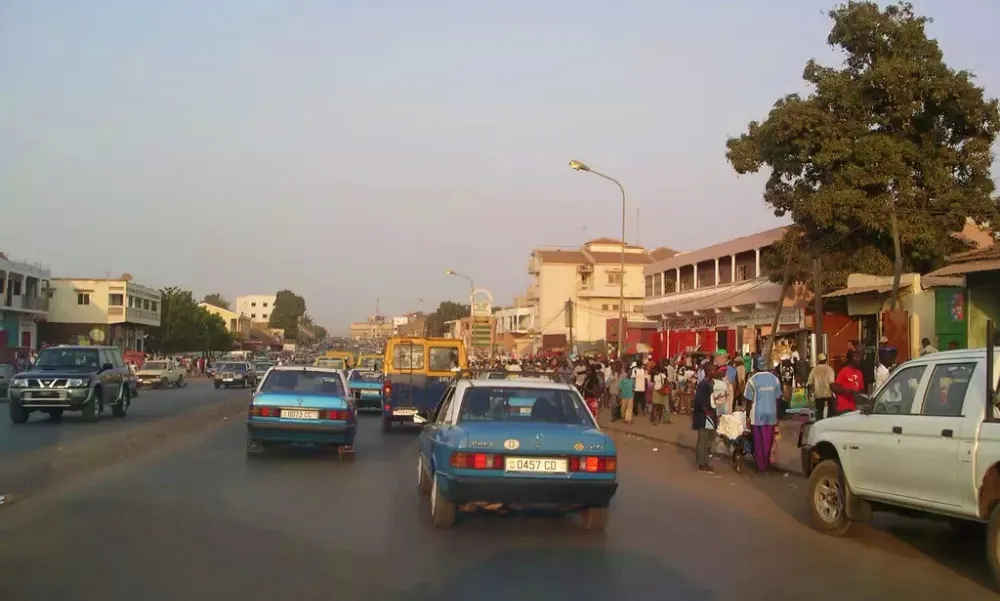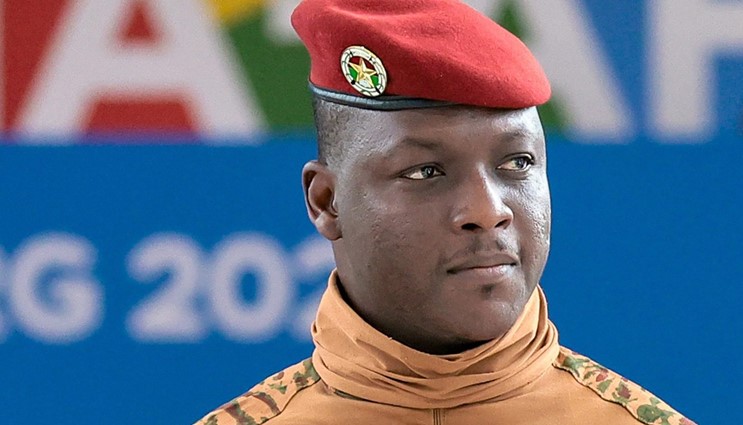Guinea-Bissau’s freedom of expression landscape has become increasingly precarious. In recent years, the government has multiplied efforts to restrict civic space through law, fear and intimidation, and brute force. Citizens who attempt to voice dissent, exercise their constitutional rights to peaceful assembly, or simply critique, often face consequences. This climate of repression has created an atmosphere where fear replaces law, and repression takes the place of dialogue.
While some may question the practical value of freedom of expression, it is far more than a democratic ideal. It is the channel through which grievances are voiced before they erupt into unrest. It offers citizens a chance to participate meaningfully in public discourse and to hold leaders accountable without resorting to violence.
Where expression is suppressed, discontent grows in silence and social trust begins to erode. In a country like Guinea-Bissau where institutions are already fragile, suppressing expression does not strengthen the state, but rather, it isolates it, weakens and makes it more vulnerable to instability.
Guinea Bissau’s Shrinking Civic Space
A glance at the country’s shrinking civic space would bring to mind the government’s infamous prohibition of public demonstrations on January 15, 2024. The Ministry of Interior and Public Order banned all public demonstrations or rallies across the country, citing security concerns. While the decision was a security measure, it effectively suspended Articles 51 and 54 of the Constitution, which guarantee the right to freedom of expression and peaceful assembly, respectively.
The ban was soon followed by violence. On May 18, 2024, security forces cracked down on a peaceful protest, arresting over 90 people, including journalists who were covering the event. The peaceful protest, organised by the then newly formed “Frente Popular,” a coalition of youth, academics, unionists, and citizens, was aimed at simply denouncing hunger, violence, and the decline of democracy.
Then in July 31, 2024, what started as a calm teachers’ protest quickly turned into a nightmare when heavily armed police officers claiming “superior orders,” moved in without warning. They launched tear gas onto the crowd, assaulted many with their batons and dispersed the peaceful protest outside the Ministry of Education in Bissau. The teachers were demanding unpaid salaries and the regularisation of their contracts.
A few months later, on November 20, 2024, students from the Escola Superior da Educação (ESE) organised a peaceful vigil in front of the Ministry of Education to protest delayed academic results, increased tuition, and deteriorating teaching conditions. The protest was equally met with violent repression. At least six students were arrested. Two journalists covering the event, were assaulted and had their equipment seized.
Official harassment against dissent
The crackdown on dissent instead of being condemned seem to have gained official endorsement. For instance, on February 27, 2025, José Carlos Macedo Monteiro, the Secretary of State for Public Order, declared a policy of “zero tolerance” for any citizen deemed to be destabilising the country. These words were pronounced as President Umaro Sissoco Embaló’s mandate ended without elections or any democratic plan for transition.
However, the message was crystal clear. Dissent would become a crime; accountability, like beauty, would fade away, and the very distinction between protest and threat would become blur, silencing all sorts of criticism.
President Embaló himself has played a central role in normalising this repression. He has publicly accused journalists of acting like opposition politicians and has ordered surveillance of media outlets through state “brigades.” He has threatened to shut down several radio stations over licencing issues and referred to journalists as “mouths for hire”. As a result, many activists and journalists have self-censored, not because their convictions have changed, but because the personal cost of speaking out has become too high. Those who dare speak do so at their own peril.
The recent case of Dr. Bubacar Turé, President of the Liga Guineense dos Direitos Humanos (Guinean League of Human Rights, LGDH), paints a vivid picture of the state’s tactics to silence divergent views. On April 12, 2025, security forces raided his home in Bissau under the pretext of delivering something to him. They forcibly entered the house, and searched for him, a source revealed under anonymity. The following day, a large police force was deployed near the port of Bissau, as officers believed he (Turé) might be trying to escape by boat. These actions were carried out without any formal charge or judicial order being made at the time, according to the LGDH.
Then, on April 16, 2025, the Public Prosecutor’s Office issued both a press statement and an official court summon addressed to Dr. Turé. The statement responded to growing claims on social and traditional media that he was being politically persecuted. Denying these allegations, the Prosecutor’s Office explained that its actions stemmed from a criminal investigation into Dr. Turé’s claim about deaths at the dialysis unit of a hospital in Bissau. The office insisted that this was a standard legal procedure aimed at establishing facts, not an act of political retaliation. But many observers considered this as another example of the government harrassing Turé for speaking out.
Dr. Turé’s case is not an isolated incident. A few days after a failed coup attempt to overthrow President Embaló in February 2022, armed men believed to be members of the Polícia de Intervenção Rápida (Rapid Intervention Police Unit, PIR) attacked the home of Rui Landim, a political analyst and popular radio panellist. His family was home when the assailants, armed with AK-47, opened fire at the gate of his residence and threw tear gas into the compound in an attempt to break down part of the fence to his residence. The attack occurred on February 8, 2022, just a day after Landim commented on the political situation in Guinea-Bissau on radio Capital FM.
A few hours after Landim’s intervention on air, the radio station itself was attacked. The attackers destroyed every piece of equipment in sight: furniture, consoles, computers, mixers, and transmitters. At least 4 journalists sustained injuries while trying to escape the attack.
Some human rights defenders, who condemned the incident and expressed support to Capital FM and Landim, were targeted. For instance, on February 9, 2022, unknown assailants attacked the home of Luis Vaz Martins, former president of the Guinean League for Human Rights (LGDH) and a regular voice on Radio Capital in Bissau. The same day, another activist, Augusto Mário Silva was threatened near his residence.
Later that year, on November 29, 2022, lawyer and political analyst Marcelino Intupé was assaulted and abducted. Armed men in plainclothes snatched him from his home after hitting him in the head with their rifle. He told the Media Foundation for West Africa (MFWA) that the attack was in connection with critical comments that he had made earlier that day on the programme Alô Guiné (Hello Guinea) which had also been posted on Facebook.
On May 17, 2024, security forces raided the home of Augusto Nansambé, a lawyer and commentator, after he encouraged citizens to join the Movimento Frente Popular protest. A few days later, on May 29, 2024, Iko Samori da Silva, a PAIGC political figure, was arrested for criticising a government official online. These examples are not exhaustive.
A Dangerous Drift
Guinea-Bissau is not an isolated case in West Africa when it comes to the criminalisation of expression. The ban on protests and the crackdown against journalists, critical voices and media outlets under the pretext of national security, reflect a broader pattern of democratic backsliding in the region. In neighbouring Burkina Faso, for example, the military-led government has arrested or silenced journalists and critics, often under the pretext of protecting national security. Similar developments are also visible in Mali, Niger, and Guinea; all countries under military rule.
If the repression in Guinea Bissau continues, coupled with the political tension in the country, democracy in the country could be jeopadised. Already, the political tension in the is very high. President Embaló has stated that his mandate ends in November 2025, but opposition parties insist it already expired in February 2025, or at the latest, will end in September. In response, ECOWAS and the United Nations sent a joint mission in February 2025 to help mediate the growing crisis and propose a roadmap for elections. However, the President dismissed the mission, accused it of being biased, and even threatened to expel the delegation. The mission was later recalled, adding to Guinea-Bissau’s diplomatic isolation.
Although repression is spreading across the region, there are also reasons for perseverance. In Senegal and The Gambia civil societies have shown the strength of peaceful resistance, digital mobilisation, and international solidarity in pushing for change. Although these acts have not been entirely smooth and all-successful, they remind us that dialogue, persistence, and collective action can bring results even in difficult contexts.
What Guinea-Bissau needs now is not silence, but sincere dialogue. Not blame, but mediation. Not isolation, but engagement. International partners, regional institutions, and local allies must step in to protect activists, journalists, and grassroots movements. This includes diplomatic engagement to encourage the government to respect civic freedoms.
An intimidated population is a disengaged one, and each voice silenced is a thread pulled from the fabric of democracy. Without space to express opinions, organise peacefully, or ask for accountability, power will remain unchecked, rights will become optional.






